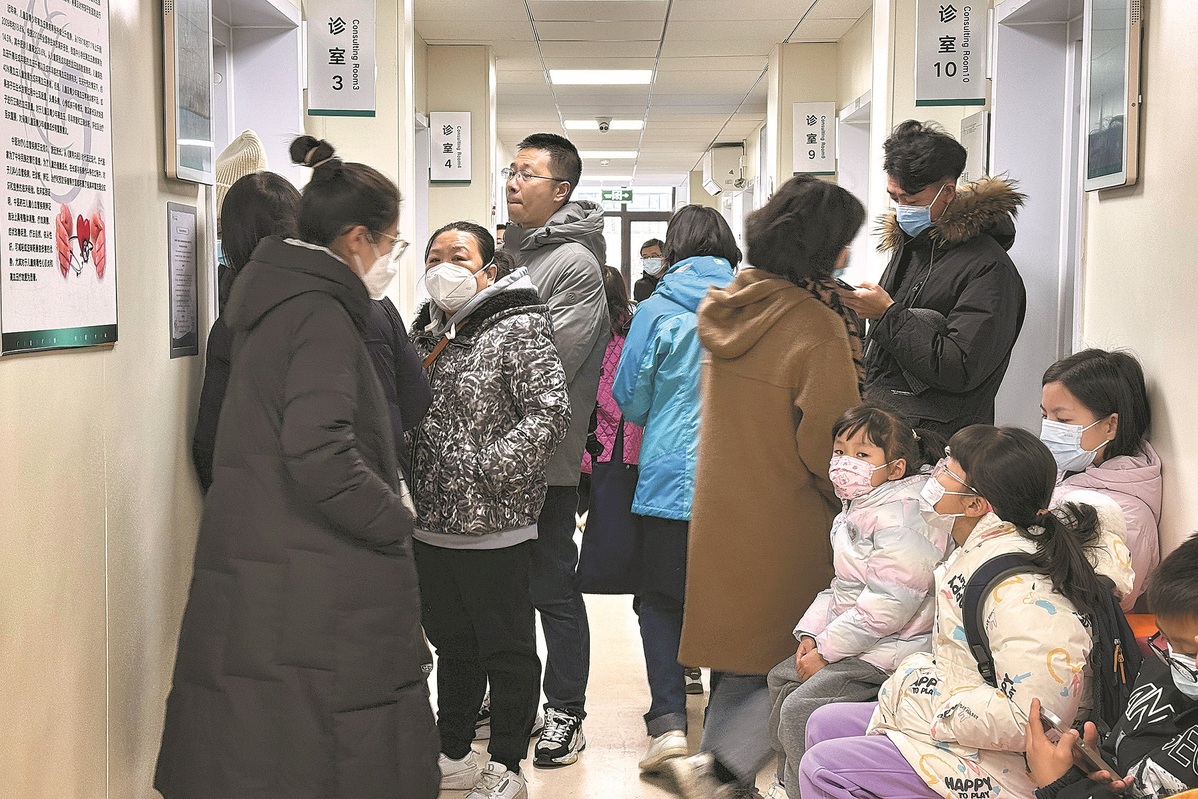Hospitals gearing up for spike in respiratory cases

Multiple viruses circulating at same time add to peak winter flu season
The recent increase in respiratory illness in China has been driven by the simultaneous spread of multiple pathogens, and hospitals are gearing up to handle a surge in patients, health officials and experts said on Sunday.
Mi Feng, spokesman for the National Health Commission, said during a news conference that while influenza is the dominant respiratory virus in circulation at present, rhinovirus, mycoplasma pneumoniae, respiratory syncytial virus and adenovirus are also spreading.
Wang Huaqing, chief immunization planning expert at the Chinese Center for Disease Control and Prevention, said that influenza and rhinovirus are the most prevalent among toddlers aged 1 to 4, and for children aged 5 to 14, influenza, mycoplasma pneumoniae and adenovirus are common infections.
Adults under age 60 are also susceptible to rhinovirus and the COVID-19 disease, while the elderly are prone to getting infected with human metapneumovirus, which causes symptoms similar to influenza, as well as regular coronaviruses.
"Multiple pathogens are coexisting during this peak season for respiratory disease," he said, adding that the public is advised to get vaccinated and take personal protective measures to prevent infections.
Rising infections have filled some hospitals to capacity as people complain about difficulties in obtaining doctor appointments or long waiting hours, especially at pediatric facilities.
Mi, the NHC spokesman, said that hospitals should strive to increase relevant clinics — that is, respiratory, fever and pediatric facilities — and treatment areas, and extend their operating hours appropriately and guarantee supplies of drugs.
To relieve pressure on major hospitals and reduce the risk of cross-infections, he said that the public should be guided to use online hospitals and visit grassroots medical institutions.
The commission said earlier last week that primary medical institutions' capability in handling mild cases and detecting early signs of severe symptoms should be strengthened.
"Epidemic prevention and control work among places with large numbers of key vulnerable groups, such as schools, day care facilities and elderly care homes should be fully implemented, and the flow of people and visits to these places should be reduced," he added.
Ying Xumin, deputy director of the Hangzhou Health Commission, said that in Hangzhou, the provincial capital of Zhejiang province in East China, respiratory and fever clinics at all medical facilities are required to extend service hours based on public need and even set up nighttime outpatient clinics.
He added that hospital administrators who were transferred from the clinical setting, as well as personnel at hospital wards, have also been mobilized to support respiratory disease clinics at this time.

